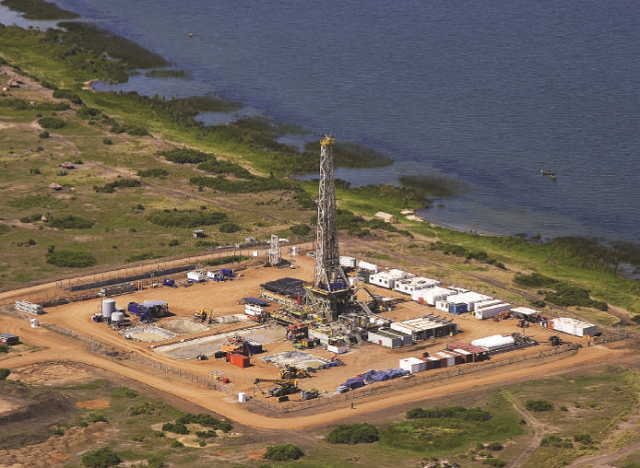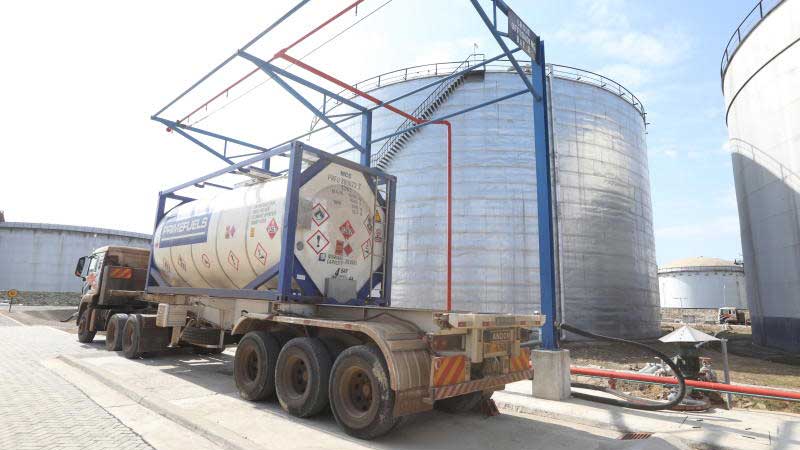Uganda expected to produce oil and gas by the end of 2025. While it is hoped oil and gas will be a game-changer for the economy, some say it may be a risky bet by countries like Uganda that are about to extract their oil and gas resources.
The fear is based on uncertainties brought by the global move to decarbonization or simply energy transition. Emerging data including new research by the Natural Resource Governance Institute (NRGI). The report Risky Bet: National Oil Companies in the Energy Transition, estimates that National Oil Companies (NOCs) could invest about USD 1.9 trillion in the next ten years.
It said one-fifth of anticipated investments in the oil and gas sector may be economically unviable if global warming is kept within or below 2 degrees Centigrade.
“A huge amount of state investments in oil projects will likely only yield returns if global oil consumption is so high that the world exceeds its carbon emission targets,” said Patrick Heller, an NRGI advisor
The study said of the $1.9 trillion, about one fifth, or $400 billion, would not result in a profit if the energy transition proceeds in line with current climate commitments.
“If widespread carbon capture and storage technologies are not deployed, this figure would climb even higher.”
The Lake Albert oil development in Uganda is expected to be one of the largest oil developments in Africa with over 1.4 billion barrels of oil over a 25-30-year period going by what has so far been found. It is expected that the Tilenga and Kingfisher fields developments will generate up to USD8 billion in fiscal revenues.
While a grim picture has been painted about new oil and gas producers like Uganda, respective National Oil Companies (NOCS), regulators and politicians are hopeful the given right policies and regulation, investments in oil and gas will benefit their economies.
Petroleum Authority of Uganda’s Legal and Corporate Affairs Director, Ali Sekatawa said while the the energy transition is likely to see more electric cars globally, he thinks the shift will not be so drastic.
“It is important to note that the use of electric cars today and in the future is not a deterrent to the global petroleum industry” Observed Sekatawa. “Uganda will be producing oil for at least the next fifty (50) years even as we join the rest of the world in the shift to renewable energy.”
Sekatawa, like others, believes that most of what is to be refined within Uganda will be consumed within Uganda and the neighbouring countries. But he points out that other petroleum products will still be imported even when Uganda will have its own oil.
Uganda’s stake in projects like the East African Crude Oil Pipeline and the refinery will be represented by Uganda National Oil Company which will hold shares therein. The National Oil Companies like UNOC are expected to play a key role in the countries development prospects in terms of oil and gas in the energy transition debate.
Uganda National Oil Company Limited (UNOC) Chief Executive Officer, Proscovia Nabbanja says while she personally understands the concerns related to climate change and environmental considerations, nobody should ignore the social and economic the benefit that the project brings.
“And we believe these social and economic benefits are going to propel our county to industrialization we have projected about USD 47 billion within the lifetime of the project. Imagine if you are bringing all that revenue in an economy of USD 30 billion GDP,” she said
Nabbanja, a professional Ugandan geologist is of the view that the debate about energy transition should be assessed from different lenses taking consideration of the developed and least developed countries in the South.
“Our approach as UNOC and as a state is to curb emission while developing the oil and gas resources for economic development,” she noted.
A new IEA report in March this year said rapid changes in behaviour from the COVID pandemic and a stronger drive by governments towards a low-carbon future have caused a dramatic downward shift in expectations for oil demand over the next six years.
Other studies predict that if the world decides to limit global warming to 2°C by 2050, oil demand would peak before 2025 and fall towards 35 million BPD by 2050, 70 per cent below peak levels.
The NRGI for example said NOCs should prepare for possible various outcomes if the global oil demand peak and later decline. Some observers believe the demand for oil and gas has peaked while others believe it will peak during this decade.
NRGI estimated that an over USD 414 billion capital expenditure will require a long-term price above USD 40 per barrel to break even or USD 943 billion at a long-term price of $ 30 to break even.
The December 2020 Climate Policy Initiative report “Understanding the impact of a low carbon transition on Uganda’s planned oil industry” said the value of Uganda’s upstream oil reserves had fallen by more than 70 per cent from $61 billion to USD 18 billion since 2013.
“Uganda will be impacted by risks that is much harder to predict: The growing awareness of climate transition risk by global financial market actors and development financial institutions, which is starting to manifest itself through increasing reluctance to provide capital to coal-fired power stations, fossil fuel resources and producers of those resources,” it warned.
Recently the UK Export Finance (UKEF) said it will cease support of fossil fuel export projects. Similarly, European governments, as well as the new US administration, have made pronouncements in that direction.
The Director of the UK Department for International Trade at the British High Commission in Uganda, Eric Olanya said it is clear that a very significant traditional source of financing for oil and gas projects is being closed down.
Some experts in opinion in the journal of international banking law and regulation said investment spend on fossil fuels between 2026 and 2040 are projected to be between USD 0.6 trillion and USD 1.4 trillion, depending on the ability of governments to adopt policies required to meet internationally agreed objectives to reduce carbon emissions.
-URN





